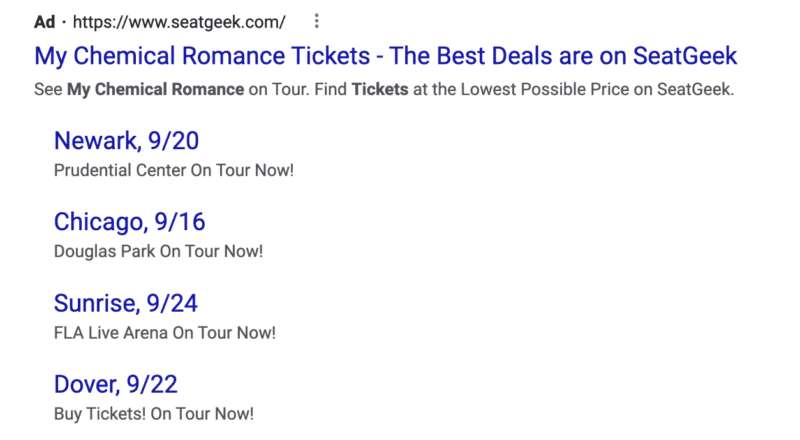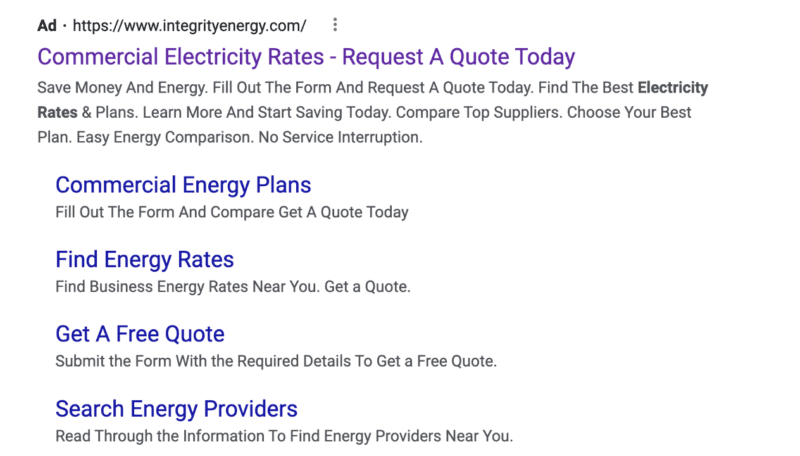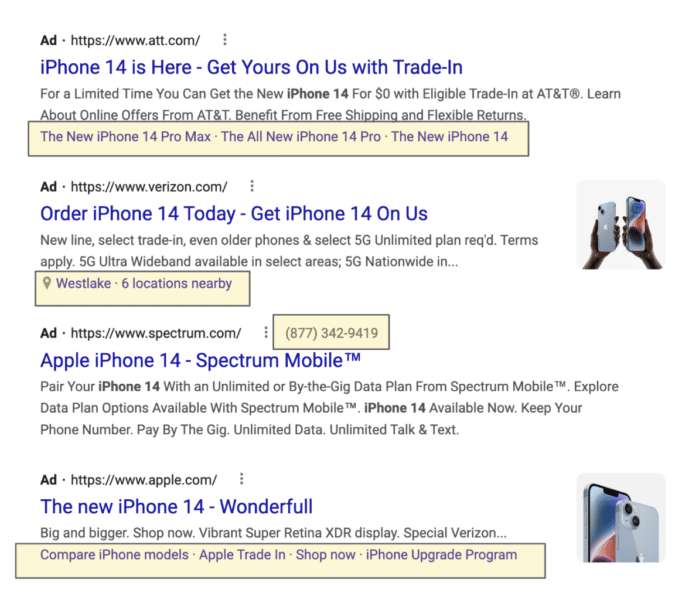Relevance is often discussed in digital marketing. It’s an important topic because not only is it good for consumers, but it is also good for advertisers since the inception of quality score.
Advertisers with higher quality scores and relevance are typically rewarded with more traffic and lower CPCs.
The following data (indexed to allow multiple verticals and clients to be merged) proves this point. As ad relevance scores go up, CPCs go down and CTR goes up.
Based on our data, an above-average ad relevance score vs. a below-average ad relevance score can decrease CPCs by 40%.

One of the most critical elements in relevance is the ad copy. In this article, I will break down several ad copy examples and identify what helps make them quality.
The elements of a relevant PPC ad
To start, we should set the ground rules.
Recently, Google has taken more control of ad optimization. With responsive search ads being the default ad type, Google has the power to choose the headline and the description it deems will perform best.
Yes, you can pin some elements down to override this auto-optimize feature, but Google’s leaning more and more on its machine learning capabilities to create the most relevant ad.
The other key is ad extensions which have just been rebranded as assets. Extensions have blossomed over the past few years, and there are now 19 different types in Google Ads:
- 8 of them are dynamic (e.g., rating, location extensions, structure snippet).
- 11 are manually set up (e.g., price, location, lead form).
When used effectively, all these elements can boost your performance. Remember the data about ad relevance. A more relevant ad can improve your CTR and decrease your CPC. The right information helps reduce friction for customers.
With that in mind, let’s look at some examples of relevant and high-quality PPC ads.
Example 1: Car insurance
Car insurance is one of the most competitive categories and high-spend verticals.
The ad I pulled is an interesting mix of a Top 3 big insurer, Progressive, and other lead generation sites. Notice which ad has bolded keywords that tie to the search term “auto insurance.”

It’s interesting to note that Progressive doesn’t have the term “auto insurance” in the description, instead focusing on consumer-proof claims (4 of 5).
They also used call extensions. When ads contain phone numbers, you instantly give the consumer the choice to call or interact online. That consumer choice is vital.
The other extensions are ratings and deals, which are used well to give consumers a sense of additional information to help make a decision.
Example 2: Concert tickets
I’m a music fan and started looking for examples for various artists and tickets to shows I might like to see. I found the below example in a search for “My Chemical Romance tickets.”

Seatgeek did a good job laying out two things:
- Calling out that the claim that it’s the lowest possible price.
- I didn’t specify which show I wanted to see, and the listings of various upcoming shows were broken out well in the extensions. This helps me choose a show and go specifically to those listings.
Example 3: Electricity rates
A similar use of the extensions in a different category was for “electricity rates.”

The use of copy and these extensions provide the right mix of options, while still focusing on performance/conversions (“Get a Quote”).
Example 4: Noise cancelling headphones
Let's not forget that Google is not just showing text ads. Shopping ads are prevalent and frequently show for retail searches.
Below is a result for the search "noise canceling headphones."
This is an interesting example because of the broad mix of pricing.
It looks like the JBL headphones are the cheapest at Target. Target also includes the "In store" note, plus the price markdown and ratings on the product. The combination of price and the robust listings is compelling.
Most brands don't consider the price point of competitors as a reason why their conversion rates are high or low when doing optimizations.
While it's a different topic, know that competitive research is a critical input needed to understand your performance.
Example 5: iPhone 14
Let's look at the hottest consumer product right now, the iPhone 14. The example below is some of the biggest players in the game.

The approach for AT&T and Verizon are similar, "Get the iPhone on Us." What is different is the use of extensions and site links. They each have a different approach.
Which ad would you click on? Why?
I personally find the AT&T ad compelling enough in the first position, and the sitelinks let me click on the specific model.
Optimizing your Google Ads campaigns
When we talk to clients, we talk about the "search experience." This includes the keyword, ad and landing page – three important elements of a PPC campaign.
Here, we focused on ads and as you've seen, different brands have different approaches – various extensions, copy and price points, among others. All of these will result in different outcomes for their advertisers.
The data shows there is real business value in delivering high ad relevance. Having the right elements to run tests and optimize is key. Be on the lookout for new elements that Google rolls out and keep testing.
The post 5 Google Ads examples with relevant and quality ad copy appeared first on Search Engine Land.
source https://searchengineland.com/google-ads-examples-relevant-quality-ad-copy-388142


0 Comments